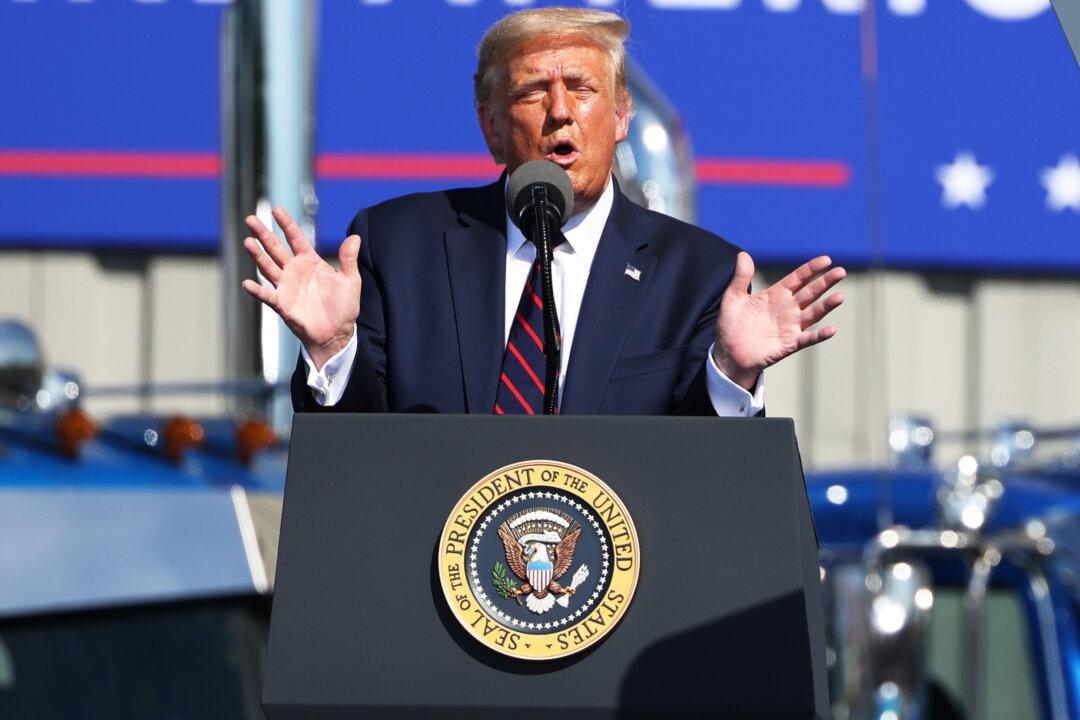President Donald Trump asked the Supreme Court to overturn a court’s finding that his blocking of critics on the popular microblogging website Twitter violates the First Amendment.
The feed for the @RealDonaldTrump account, which has 85.4 million followers, is constantly filled with replies from users who taunt and insult the president, often using expletives, and Trump has locked horns with Twitter management plenty of times.





